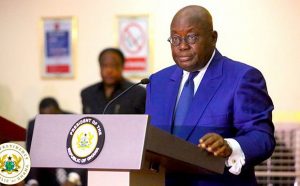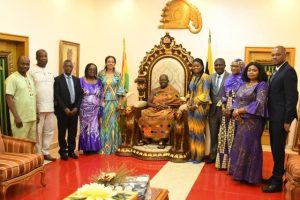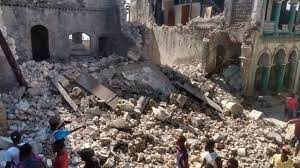The Speaker of the ECOWAS Parliament, Dr Sidie Mohammed Tunis, has called on the ECOWAS Leader, President Nana Akufo-Addo, to consider imposing harsher punishments on presidents who try to amend their constitutions to gain undue advantage.
He said it had become necessary that the leadership went beyond statements that merely condemned those actions and considered imposing tougher punishments on would-be perpetrators.
“Amending a constitution to conform to current realities itself is not a problem however when the propose amendments of the constitution protect the governing elite at the expense of citizens or undermined the very nature of the constitutional democracy thereby granting the incumbent undue advantage to extend his mandate then we have a problem,” he said.
Dr Tunis said this at the High-Level Regional Parliamentary Seminar by the Fifth Legislative Assembly of ECOWAS at Winneba in the Central Region.
The Seminar, being attended by members of the ECOWAS Parliament and ECOWAS Commission, is on the theme: “Two Decades of Democratic Elections in ECOWAS Member States: Achievements, Challenges and the Way Forward.”
Dr Tunis also condemned the recent phenomenon of some ECOWAS Heads of States amending their country’s constitution before the conclusion of their term of office.
The practice, if not checked, had the tendency of eroding the gains ECOWAS had made as a community, thereby sinking the region into more chaos and creating serious risks, he said.
Dr Tunis said the hijacking of electoral processes, voter fraud, disenfranchisement, attack on free speech and the press are vices that attacked a country’s electoral system and took the shine out of democracy.
Ms Shirley Ayorkor Botchway, the Minister of Foreign Affairs and Regional Integration, said recent events in Mali and Guinea had made it imperative for an urgent review of the 2001 Supplementary Protocol on Democracy and Good Governance.
She said after two decades of the document’s existence the time had come to revise it to jettison the inherent weaknesses and bring new ideas on board to strengthen and consolidate democracy and good governance in the sub-region.
Ms Botchway said as the Community continued to adapt to ever changing global, continental and regional environment, it was important for the people’s representatives to make an assessment of what ECOWAS had been able to achieve, the challenges confronting it in the quest to consolidate democratic practice, and how to work together to strengthen governance mechanism that would deliver on the aspirations of the citizens.
Mr Alexander Afenyo-Markin, the Leader of Ghana’s delegation to the ECOWAS Parliament, highlighted some of the democratic gains in Ghana and ECOWAS as a whole.
He said, over the past two decades, the community had placed high value on entrenching democracy across member states, which had achieved significant success.
Despite the sub-regions’ brutal past and dictatorial regimes resulting in poverty, loss of human lives and economic stagnation, it was evident that the Africa region had recovered significantly from the menace and the states were more secure, democratic, prosperous and progressive, he said.
Mr Afenyo-Markin said recent developments in Mali and Guinea provided reasons for a more consolidated effort to protect the strides made.
“It is the reason why the ECOWAS Parliament deem it fit to hold the seminar for the purpose of taking stock of the democratic legacy as a region and propose recommendations as to how they can better protect it,” he said.







